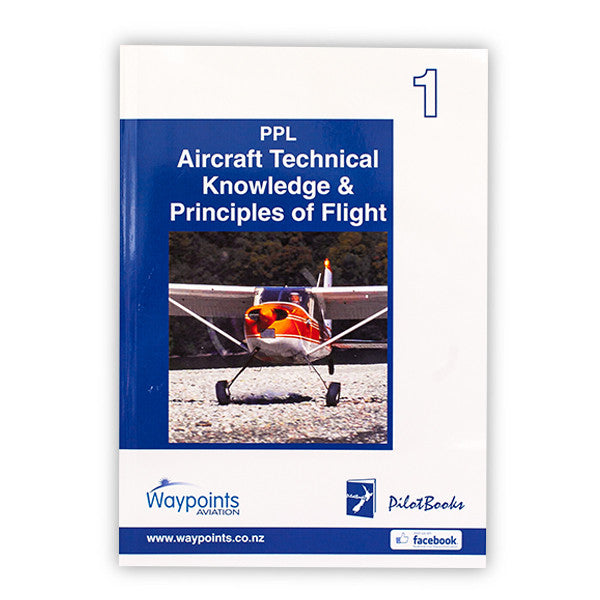

Vol 01: PPL Aircraft Technical Knowledge (October 2024) - GST Excl
Quick Overview
Also available in iBook format
Details
The Private Pilot Series - Volume 1, Aircraft Technical Knowledge
Sound knowledge of technical and aerodynamic matters is a prerequisite to good airmanship A pilot who understands these matters is well equipped to deal with the management of the aircraft under normal and emergency conditions.
Considering the possible difficulty faced by many aviation students when trying to understand technical jargon, the author of this text has made every effort to keep explanations simple and easy to follow.
Each chapter starts with an explanation or description of the topics to be discussed and then takes the student through the material in a logical sequence. Liberal use is made of diagrams and photographs which support the written text. At the end of each chapter you will find a Chapter Review which poses a number of questions on material discussed in the chapter. The answers to the questions are contained in an appendix at the end of the book.
Bearing in mind the diversity of student requirements with regard to the type of licence aimed at, eg, fixed wing, helicopter, microlight, and so on, this manual is suitable for most types. For example, the chapter on Other Engines covers the principles of the two-stroke engine which is commonly used for microlight aircraft.
Although this manual is broadly aimed at aeroplane (fixed-wing) students, it is also a suitable study reference for helicopter students because many of the topics discussed are common to both types. For example, engines, instruments, determination of centre of gravity, and a host of other topics are common to both types. The helicopter student simply skips those items that are clearly applicable to aeroplanes only, e.g. flaps. Helicopter students should also refer to our text, Principles of Helicopter Flight
At the end of the book is an appendix that contains a full Sample Examination of all the material explained. The questions are of the multi-choice type which reflects the model used by Aviation Services Ltd (ASL). ASL is aviation industry owned company and delegated by the Civil Aviation Authority (CAA) to conduct written examinations and flight tests. This manual, as well as others in the Pilot Books Series, is a text recommended by ASL.

